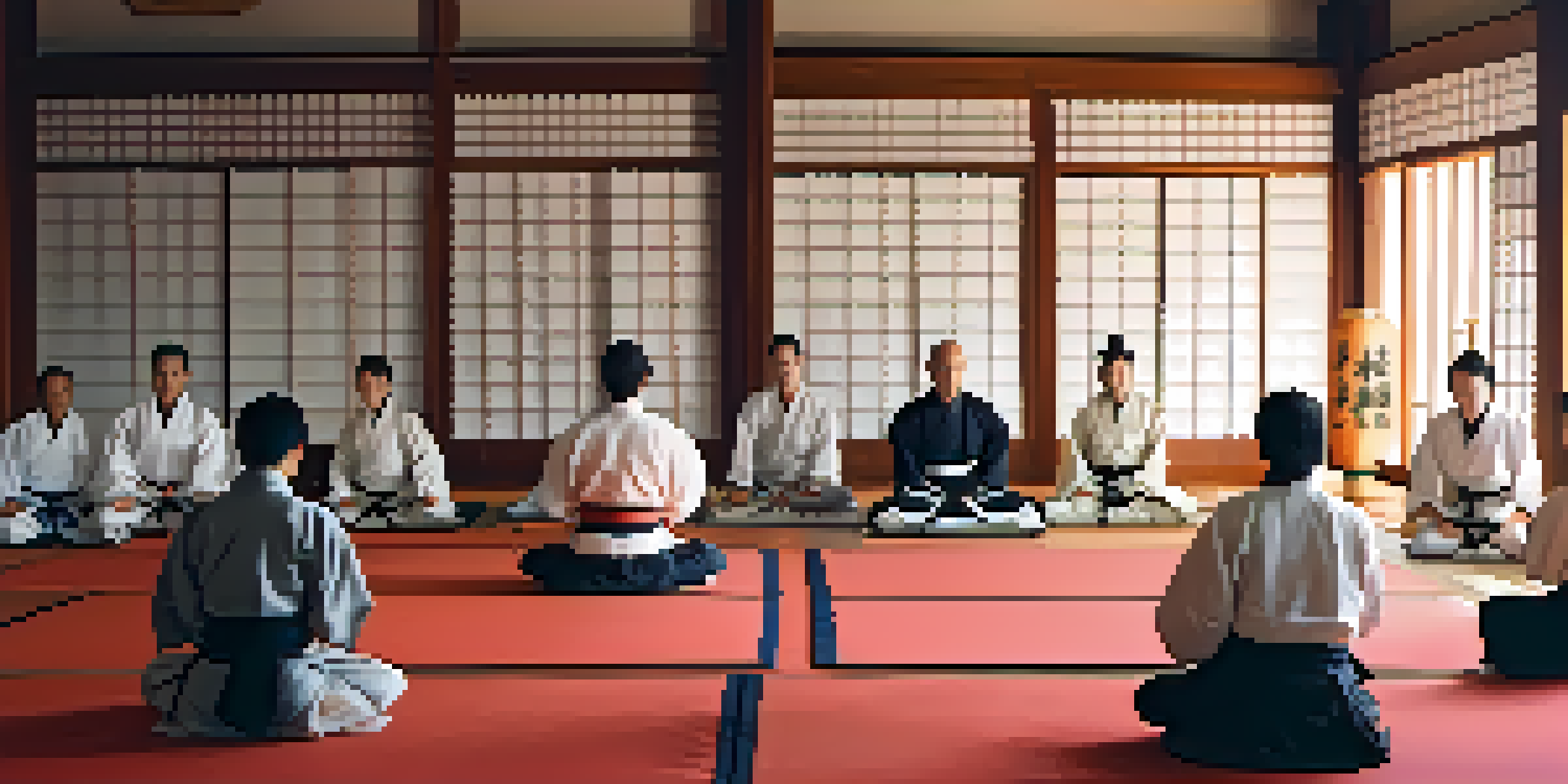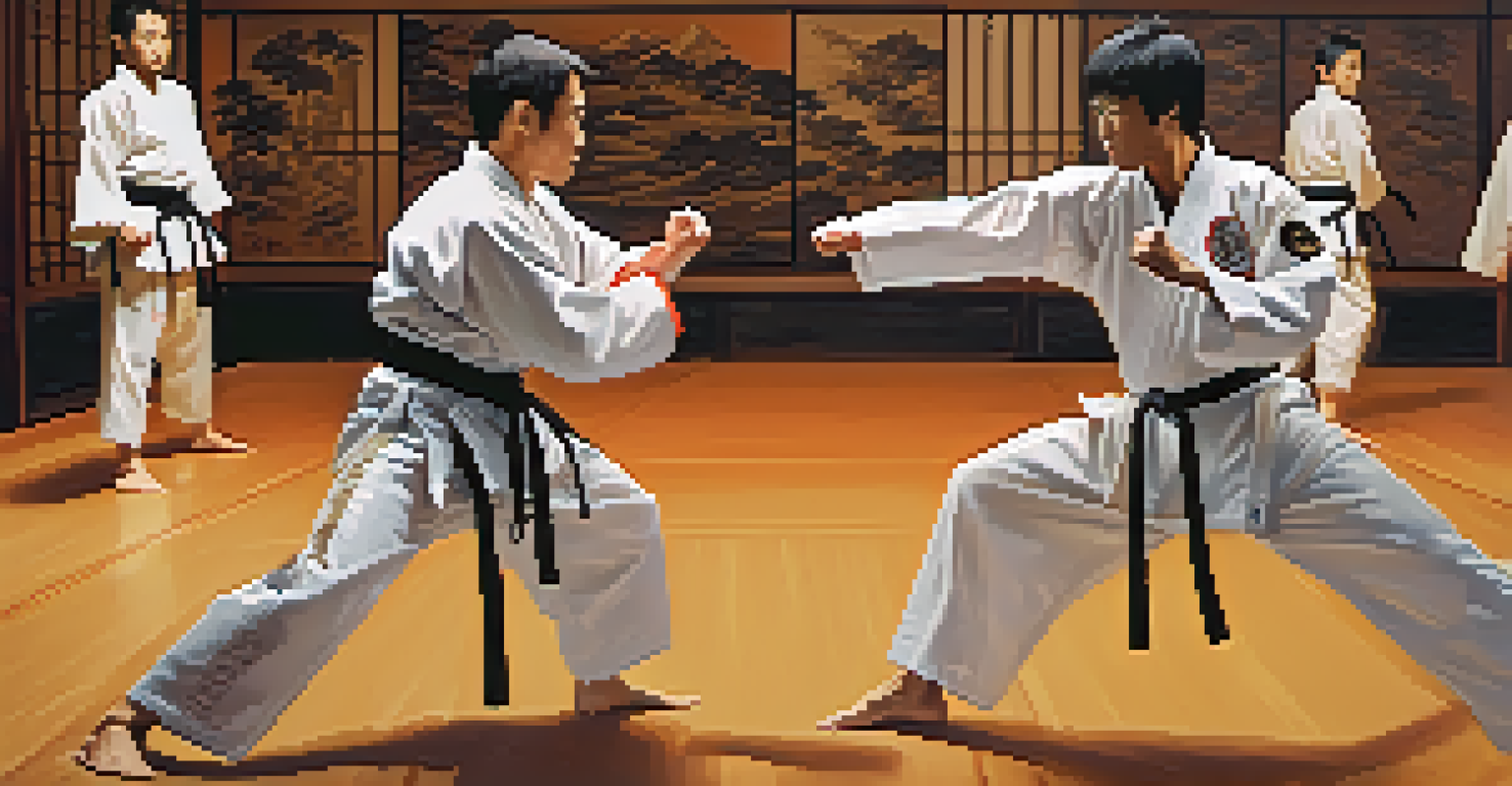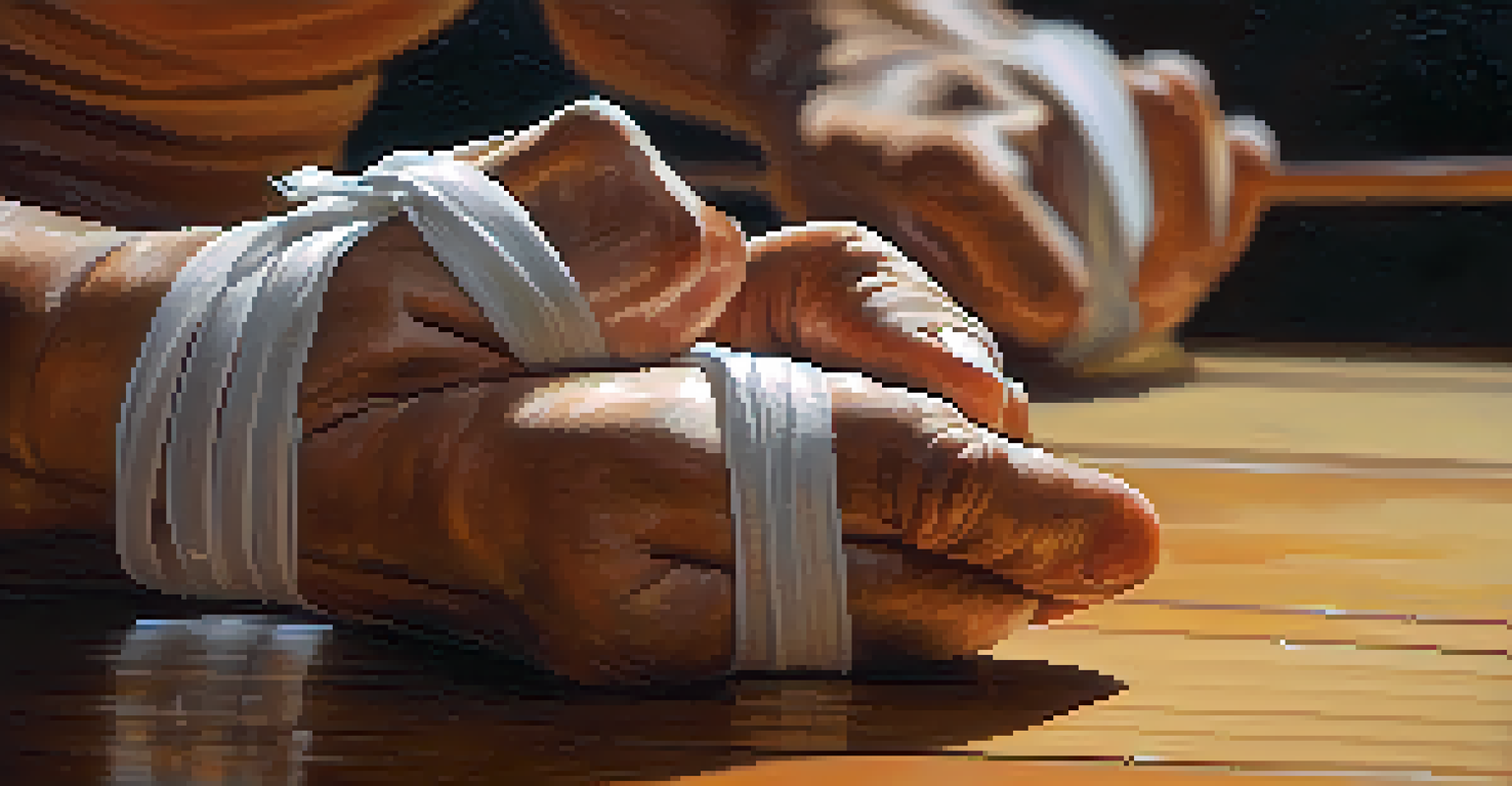Martial Arts and Trauma Recovery: A Comprehensive Approach

Understanding Trauma and Its Impact on the Mind and Body
Trauma can affect individuals in profound ways, leaving lasting scars on both the mind and body. Whether it stems from physical abuse, accidents, or emotional distress, the repercussions can manifest as anxiety, depression, and even physical ailments. Understanding these impacts is crucial for anyone looking to heal, as it sets the stage for recovery and growth.
The greatest glory in living lies not in never falling, but in rising every time we fall.
Many people may experience feelings of isolation or hopelessness, thinking they are alone in their struggles. This is where community becomes vital; connecting with others who have shared experiences can foster a sense of belonging. In this context, martial arts can serve as a bridge, offering both physical training and a supportive environment.
By engaging in martial arts, individuals can begin to reclaim their bodies and minds, learning that they are capable of strength and resilience. This holistic approach helps in addressing trauma by combining physical movement with mental focus, paving the way for a more integrated healing process.
The Role of Martial Arts in Building Physical Resilience
Martial arts training involves rigorous physical activity that can significantly enhance physical resilience. As practitioners learn various techniques, they not only improve their strength and flexibility but also develop a deeper connection to their bodies. This physical empowerment is crucial for trauma survivors, many of whom may feel disconnected from their physical selves.

Through repetitive practice, martial arts help individuals gain confidence in their physical abilities. The act of mastering a technique or sparring with a partner can create a sense of accomplishment that translates into other areas of life. It’s not just about fighting; it's about building a strong foundation of self-esteem and body awareness.
Martial Arts Aid Trauma Recovery
Engaging in martial arts helps trauma survivors reclaim their bodies and minds, promoting healing through physical and mental resilience.
Moreover, the physical challenges presented in martial arts can act as a healthy outlet for pent-up emotions. Participants often find that pushing their limits in a controlled environment can lead to cathartic release, helping them process their trauma in a constructive way.
Cultivating Mental Strength Through Martial Arts Practice
Mental resilience is just as important as physical strength in trauma recovery. Martial arts training encourages focus, discipline, and determination, skills that are invaluable when navigating the aftermath of trauma. Each class provides opportunities to practice mindfulness, an essential component in managing anxiety and stress.
Healing takes time, and asking for help is a courageous step.
The routines and rituals in martial arts, such as meditation and breathing exercises, help practitioners cultivate a calm and centered mindset. These practices encourage self-reflection and awareness, allowing individuals to confront their emotions head-on rather than avoiding them. By fostering this mental agility, martial arts can serve as a powerful tool in one's healing journey.
As students face challenges and setbacks in their training, they learn to embrace persistence and resilience. This process mirrors the journey of overcoming trauma, teaching valuable lessons about perseverance and the strength that lies within.
Creating a Supportive Community in Martial Arts
One of the most significant benefits of martial arts is the sense of community it fosters. Training alongside others creates bonds that often extend beyond the dojo, offering support and encouragement. This community aspect can be particularly beneficial for individuals recovering from trauma, as it provides a safe space to share experiences and feelings.
In a supportive environment, students feel less isolated and more empowered to confront their challenges. The camaraderie built through shared training experiences can lead to lasting friendships, providing a network of support that is invaluable during recovery. This connection can help individuals feel understood and validated.
Community Supports Healing Journey
The sense of community fostered in martial arts creates a supportive environment, allowing individuals to share experiences and feel less isolated.
Additionally, many martial arts instructors are trained to recognize the unique needs of students who may be dealing with trauma. Their guidance can help cultivate a culture of respect and empathy, making it easier for individuals to engage fully in their healing process.
The Empowering Nature of Martial Arts Techniques
Martial arts techniques often focus on empowering individuals by teaching them how to defend themselves. This empowerment can be particularly therapeutic for those who have experienced trauma, as it instills a sense of control and safety. Learning self-defense skills can transform feelings of vulnerability into a sense of strength.
As students practice techniques, they often gain a new perspective on their bodies and capabilities. This newfound confidence can extend beyond the dojo, affecting how they navigate daily life, relationships, and interactions with others. It serves as a reminder that they can protect themselves and stand strong in the face of adversity.
Furthermore, the focus on discipline in martial arts encourages individuals to take ownership of their healing journey. By actively participating in their recovery process, they can cultivate a sense of agency that is often lost in the aftermath of trauma.
Mindfulness and Breathing Techniques in Martial Arts
Mindfulness and breathing techniques are integral components of many martial arts practices, helping to ground practitioners in the present moment. These techniques can be particularly beneficial for trauma survivors, as they provide tools to manage anxiety and intrusive thoughts. Learning to focus on the breath can create a calming effect that promotes relaxation and mental clarity.
Incorporating mindfulness into martial arts training encourages individuals to become more aware of their bodies and emotions. This heightened awareness allows practitioners to process their feelings in real time, rather than becoming overwhelmed by them. As they learn to navigate their emotional landscape, they often find themselves better equipped to face challenges outside of training.
Mindfulness Enhances Recovery
Incorporating mindfulness and breathing techniques in martial arts training helps trauma survivors manage anxiety and build a deeper mind-body connection.
Moreover, the practice of mindfulness fosters a deeper connection between the mind and body, reinforcing the idea that healing is a holistic journey. By combining physical movement with mental focus, martial arts can serve as a powerful vehicle for recovery.
Integrating Martial Arts into a Comprehensive Recovery Plan
Integrating martial arts into a comprehensive recovery plan can enhance the overall healing process for trauma survivors. When combined with therapy, community support, and other wellness practices, martial arts can provide a well-rounded approach to recovery. This multifaceted strategy addresses the emotional, mental, and physical aspects of healing.
Individuals considering martial arts as part of their recovery should seek out programs that emphasize safety, respect, and personal growth. Finding the right instructor and community is essential for creating an environment conducive to healing. It's important to remember that recovery is not a linear process; having a supportive team can make all the difference.

Ultimately, the journey of trauma recovery is deeply personal. By incorporating martial arts into their lives, individuals can cultivate resilience, build confidence, and foster connections that support their healing journey. This comprehensive approach can empower them to reclaim their lives and move forward with renewed strength.